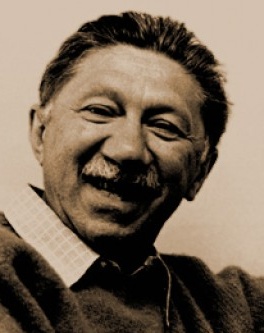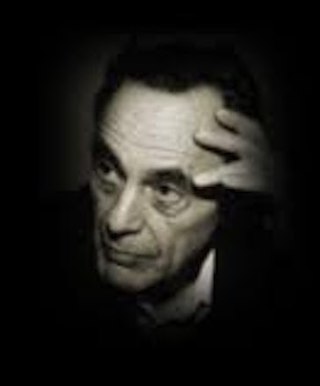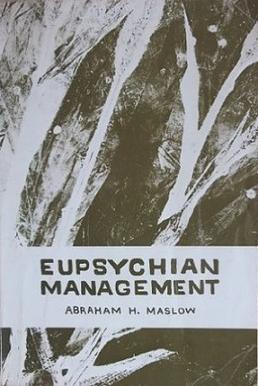Related Research Articles

Carl Ransom Rogers was an American psychologist who was one of the founders of humanistic psychology and was known especially for his person-centered psychotherapy. Rogers is widely considered one of the founding fathers of psychotherapy research and was honored for his pioneering research with the Award for Distinguished Scientific Contributions by the American Psychological Association (APA) in 1956.

Rollo Reece May was an American existential psychologist and author of the influential book Love and Will (1969). He is often associated with humanistic psychology and existentialist philosophy, and alongside Viktor Frankl, was a major proponent of existential psychotherapy. The philosopher and theologian Paul Tillich was a close friend who had a significant influence on his work.

Abraham Harold Maslow was an American psychologist who created Maslow's hierarchy of needs, a theory of psychological health predicated on fulfilling innate human needs in priority, culminating in self-actualization. Maslow was a psychology professor at Brandeis University, Brooklyn College, New School for Social Research, and Columbia University. He stressed the importance of focusing on the positive qualities in people, as opposed to treating them as a "bag of symptoms". A Review of General Psychology survey, published in 2002, ranked Maslow as the tenth most cited psychologist of the 20th century.
Humanistic psychology is a psychological perspective that arose in the mid-20th century in answer to two theories: Sigmund Freud's psychoanalytic theory and B. F. Skinner's behaviorism. Thus, Abraham Maslow established the need for a "third force" in psychology. The school of thought of humanistic psychology gained traction due to key figure Abraham Maslow in the 1950s during the time of the humanistic movement. It was made popular in the 1950s by the process of realizing and expressing one's own capabilities and creativity.
Transpersonal psychology, or spiritual psychology, is an area of psychology that seeks to integrate the spiritual and transcendent aspects of the human experience within the framework of modern psychology.

George Alexander Kelly was an American psychologist, therapist, educator and personality theorist. He is considered a founding figure in the history of clinical psychology and is best known for his theory of personality, personal construct psychology. Kelly's work has influenced many areas of psychology—including constructivist, humanistic, existential, and cognitive psychology.
The transpersonal is a term used by different schools of philosophy and psychology in order to describe experiences and worldviews that extend beyond the personal level of the psyche, and beyond mundane worldly events.

Eugene Tovio Gendlin was an American philosopher who developed ways of thinking about and working with living process, the bodily felt sense and the "philosophy of the implicit". Though he had no degree in the field of psychology, his advanced study with Carl Rogers, his longtime practice of psychotherapy and his extensive writings in the field of psychology have made him perhaps better known in that field than in philosophy. He studied under Carl Rogers, the founder of client-centered therapy, at the University of Chicago and received his PhD in philosophy in 1958. Gendlin's theories impacted Rogers' own beliefs and played a role in Rogers' view of psychotherapy. From 1958 to 1963 Gendlin was Research Director at the Wisconsin Psychiatric Institute of the University of Wisconsin. He served as an associate professor in the departments of Philosophy and Comparative Human Development at the University of Chicago from 1964 until 1995.
John Rowan was an English author, counsellor, psychotherapist and clinical supervisor, known for being one of the pioneers of humanistic psychology and integrative psychotherapy. He worked in exploring transpersonal psychology, and wrote about the concept of subpersonality.

James Frederick Thomas Bugental was one of the predominant theorists and advocates of the Existential-humanistic therapy movement. He was a therapist, teacher and writer for over 50 years. He received his Ph.D. from Ohio State University, was named a Fellow of the American Psychological Association in 1955, and was the first recipient of the APA's Division of Humanistic Psychology's Rollo May Award. He held leadership positions in a number of professional organizations, including president of the California State Psychological Association.
Transpersonal disciplines are academic fields of interest that study the transpersonal.
The following outline is provided as an overview of and topical guide to abnormal psychology:
Stephen A. Diamond is an American clinical and forensic psychologist, a former pupil and protégé of Dr. Rollo May, and notable author of Anger, Madness, and the Daimonic: The Psychological Genesis of Violence, Evil, and Creativity. His work focuses on the psychological topics of anger, violence, evil, mental illness, and the daimonic.
The Journal of Transpersonal Psychology (JTP) is a semi-annual, peer-reviewed academic journal which is published by the Association for Transpersonal Psychology (ATP). The journal is a seminal publication in the field of transpersonal psychology. According to sources the journal is addressing the interface between psychology and spirituality, and the area of spirituality as a legitimate topic for academic studies.
Saybrook University is a private university in Pasadena, California. It was founded in 1971 by Eleanor Camp Criswell and others. It offers postgraduate education with a focus on humanistic psychology. It features low residency, master's, and doctoral degrees and professional certification programs. The university is accredited by the WASC Senior Colleges and University Commission. The university is classified an exclusively graduate institution with programs that are "Research Doctoral: Humanities/social sciences-dominant". As of Fall of 2017 the university had 785 students enrolled. The university reported 222 full-time and part-time academic faculty in 2017.
Kirk J. Schneider is a psychologist and psychotherapist who has taken a leading role in the advancement of existential-humanistic therapy, and existential-integrative therapy. Schneider is also the current editor of the Journal of Humanistic Psychology. His major books are Existential-Humanistic Therapy (2010), Existential-Integrative Therapy (2008), The Handbook of Humanistic Psychology (2001), The Psychology of Existence (1995), Rediscovery of Awe (2004), Awakening to Awe (2009), and "The Polarized Mind" (2013).
E. Paul Bindrim was an American psychotherapist who is known as the founder of nude psychotherapy which he believed allowed people to access and express repressed feelings more easily.
Nude psychotherapy was the use of non-sexual social nudity as an intentional means to improve the participant's psychological health. This practice is now largely forgotten, never having achieved mainstream acceptance. The practice traces its origin to the 1930s with psychological studies of the effects of social nudity on the lives of naturists. It developed in the 1960s along with the encounter group movement as a way to challenge preconceptions and promote intimacy and trust, but suffered a decline in the 1980s. In contemporary America, nudity has been incorporated into workshops and therapies for health and wellbeing generally conducted outside the medical and psychological professions.
The International Transpersonal Association (ITA) is membership organization in the field of Transpersonal studies.

Maslow on Management is a work on industrial psychology by Abraham Maslow, first published in 1965. Maslow's work is frequently invoked in attempts to explain and predict work behavior. In his work Maslow advocated the eupsychian management as the ideal model for industrial organizations. Maslow took a keen interest in the application of humanistic psychology beyond one-on-one therapy to larger endeavors in organizations and education settings, where greater numbers of people could be positively affected.
References
- ↑ American Psychological Association. PsycEXTRA® Content Owners - International – Associations and Conferences. List current as of July 2014.
- 1 2 3 4 5 Aanstoos, C. Serlin, I., & Greening, T. (2000). History of Division 32 (Humanistic Psychology) of the American Psychological Association. In D. Dewsbury (Ed.), "Unification through Division: Histories of the divisions of the American Psychological Association", Vol. V. Washington, D.C.: American Psychological Association.
- ↑ Dr. Rollo May Is Dead at 85; Was Innovator in Psychology. The New York Times, October 24, 1994
- ↑ Greening T. The Origins of the Journal of Humanistic Psychology and the Association for Humanistic Psychology. Journal of Humanistic Psychology. 1985;25(2):7-11. doi:10.1177/0022167885252002
- ↑ Taylor, E. An Intellectual Renaissance of Humanistic Psychology. Journal of Humanistic Psychology, Vol. 39 No. 2, Spring 1999 7-25.
- 1 2 Elkins, D.N. A Humanistic Approach to Spiritually Oriented Psychotherapy, in L. Sperry and E. P. Shafranske, editors (2005) Spiritually Oriented Psychotherapy. Washington, DC: American Psychological Association.
- 1 2 Ryback, D. A More Human Psychology at the Crossroads. American Psychologist, 1990, Vol. 45, No. 11, 1271–1272
- ↑ Clay, R.A. A renaissance for humanistic psychology. American Psychological Association Monitor, September 2002, Vol 33, No. 8, page 42
- 1 2 3 4 Harari, Carmi. Notes on the early international development of humanistic psychology. Journal of Humanistic Psychology, vol. 37, no. 1, winter 1997, pp. 11+.
- ↑ Reinhold, R. Humanistic Psychology Shows Its Force. The New York Times, September 4, 1970
- 1 2 Hanna, Eleanor Criswell. The Heart of Humanistic Psychology. Somatics, 2019
- ↑ Hassard J. The AHP Soviet Exchange Project: 1983-1990 and beyond. Journal of Humanistic Psychology. 1990;30(3):6-51. doi:10.1177/0022167890303002
- ↑ Brotman,B. Conventioneers Come To Grips With Emotions. Chicago Tribune, July 25, 1985.
- ↑ Fields, D.M. Institutions for the 21st century. The Futurist; Washington Vol. 27, Iss. 1, (Jan/Feb 1993): 33.
- ↑ Olweean, Steve, and Friedman, Sandra . "Sharing tools for personal/global harmony." Journal of Humanistic Psychology, vol. 37, no. 1, winter 1997, pp. 64+.
- ↑ "Self-actualization - psychological well-being" . Retrieved 28 March 2024.